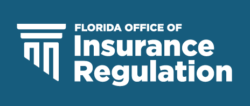Plus, a new dispute on one-way attorney fees
 Florida’s latest property insurance company insolvency may likely trigger the first emergency assessment on the industry since Hurricane Andrew, new questions being raised in courtrooms on how to apply the recent one-way attorney fee statute reform, the renewed fight against third-party litigation financing, plus new rules take effect this week on paying Florida property insurance claims. It’s all in this week’s Property Insurance News.
Florida’s latest property insurance company insolvency may likely trigger the first emergency assessment on the industry since Hurricane Andrew, new questions being raised in courtrooms on how to apply the recent one-way attorney fee statute reform, the renewed fight against third-party litigation financing, plus new rules take effect this week on paying Florida property insurance claims. It’s all in this week’s Property Insurance News.
 FIGA Assessment: The Florida Insurance Guaranty Association (FIGA) Board of Directors met last Tuesday to deal with United Property & Casualty Insurance Company (UPC), the seventh Florida domestic insurance company to become insolvent in the past 13 months. FIGA staff reports it will be getting 15,319 open claims from the UPC insolvency (up to 20,000 when you count re-opened claims), costing FIGA $450 million to $550 million. That will force FIGA to float bonds, something it hasn’t done since 1993 to handle Hurricane Andrew claims, and pay for it through an emergency assessment over five years on insurance companies, who will pass it on to policyholders. FIGA staff is recommending a 0.80% regular assessment in 2023 to pay the ongoing insolvencies and to issue $650M in bonds to cover cash flow needs for the UPC insolvency. The bonds would be paid back through an emergency assessment that would be less than the 4% allowed by state law but is yet to be determined. The FIGA Board took no action, but will do so at a later meeting this month.
FIGA Assessment: The Florida Insurance Guaranty Association (FIGA) Board of Directors met last Tuesday to deal with United Property & Casualty Insurance Company (UPC), the seventh Florida domestic insurance company to become insolvent in the past 13 months. FIGA staff reports it will be getting 15,319 open claims from the UPC insolvency (up to 20,000 when you count re-opened claims), costing FIGA $450 million to $550 million. That will force FIGA to float bonds, something it hasn’t done since 1993 to handle Hurricane Andrew claims, and pay for it through an emergency assessment over five years on insurance companies, who will pass it on to policyholders. FIGA staff is recommending a 0.80% regular assessment in 2023 to pay the ongoing insolvencies and to issue $650M in bonds to cover cash flow needs for the UPC insolvency. The bonds would be paid back through an emergency assessment that would be less than the 4% allowed by state law but is yet to be determined. The FIGA Board took no action, but will do so at a later meeting this month.
 One-Way Attorney Fee Question: When the Florida Legislature passed SB 2-A last December, part of the 2022 Insurance Consumer Protections & Market Reforms, it eliminated one-way attorney fees to plaintiff lawyers in property insurance lawsuits. Now there’s a fight in court about whether the new law is retroactive to the date of policy issue or instead the date the lawsuit was filed by the plaintiff attorney. The Insurance Journal reports plaintiff counsel insist it’s the date of the policy and defense counsel say it’s the lawsuit or Notice of Intent to Litigate (NOITL) date that should govern. American Integrity Insurance and Spinnaker Insurance have filed motions in separate cases asking the courts to deny homeowners’ attorneys requests that the carrier pay their legal fees.
One-Way Attorney Fee Question: When the Florida Legislature passed SB 2-A last December, part of the 2022 Insurance Consumer Protections & Market Reforms, it eliminated one-way attorney fees to plaintiff lawyers in property insurance lawsuits. Now there’s a fight in court about whether the new law is retroactive to the date of policy issue or instead the date the lawsuit was filed by the plaintiff attorney. The Insurance Journal reports plaintiff counsel insist it’s the date of the policy and defense counsel say it’s the lawsuit or Notice of Intent to Litigate (NOITL) date that should govern. American Integrity Insurance and Spinnaker Insurance have filed motions in separate cases asking the courts to deny homeowners’ attorneys requests that the carrier pay their legal fees.

Lawsuit by Nick Yougnson CC BY-SA 3.0 Alpha Stock Images
Third-Party Litigation Financing: After a failed attempt in the 2021 session, the Florida Legislature this session will again consider a measure to regulate third-parties who provide money to fund plaintiff lawsuits in exchange for a cut of any future verdict or settlement (see our Bill Watch in this newsletter). Nationwide, litigation funders have committed more than $3.2 billion to lawsuits through mid-2022, according to Bloomberg Law. That’s a nearly 16% increase from the previous 12-month period. Some 44 lawsuit funders have $13.5 billion in assets under management, up 9% in the past year. A recent report by Congress’ Government Accountability Office found that data on litigation funding is largely unavailable and the practice is largely unregulated. The State Lawsuit Reform website run by the American Legislative Exchange Council (ALEC) provides a state-by-state comparison on legal environment & tort reform efforts. You can find information on frequency of different types of litigation, liability sharing, and damages.
 OIR Notices: The Florida Office of Insurance Regulation (OIR) reminds us by Informational Memorandum OIR-23-01M that new requirements take effect March 1 along with new deadlines on claims payments by property insurance companies from the December 2022 passage of SB 2-A. Insurance companies must now acknowledge a claim within 7 days and begin an investigation within 7 days after the proof-of-loss is received, along with other revisions to the Prompt Pay Laws. OIR last week also announced a data call for enhanced catastrophe reporting for Hurricane Ian for March 2023. The reporting deadline is this Thursday, March 9, 2023, by 12pm ET.
OIR Notices: The Florida Office of Insurance Regulation (OIR) reminds us by Informational Memorandum OIR-23-01M that new requirements take effect March 1 along with new deadlines on claims payments by property insurance companies from the December 2022 passage of SB 2-A. Insurance companies must now acknowledge a claim within 7 days and begin an investigation within 7 days after the proof-of-loss is received, along with other revisions to the Prompt Pay Laws. OIR last week also announced a data call for enhanced catastrophe reporting for Hurricane Ian for March 2023. The reporting deadline is this Thursday, March 9, 2023, by 12pm ET.
LMA Newsletter of 3-6-23

